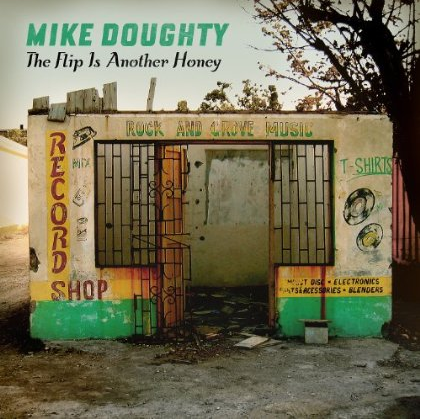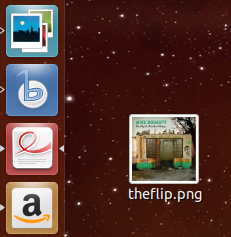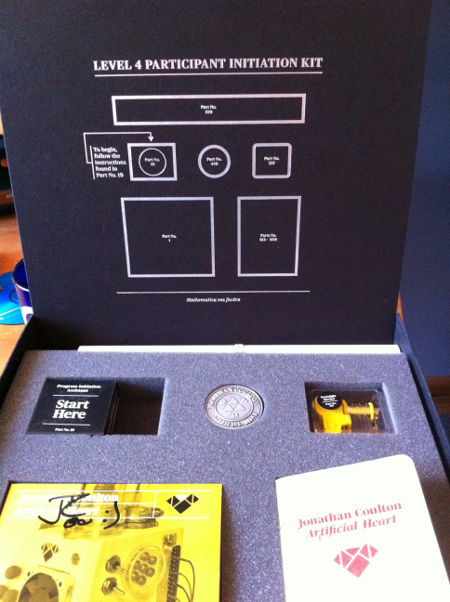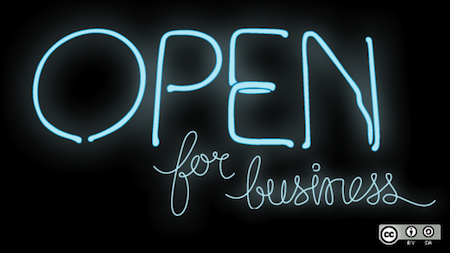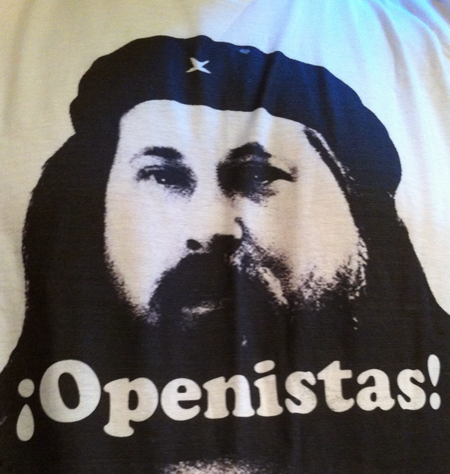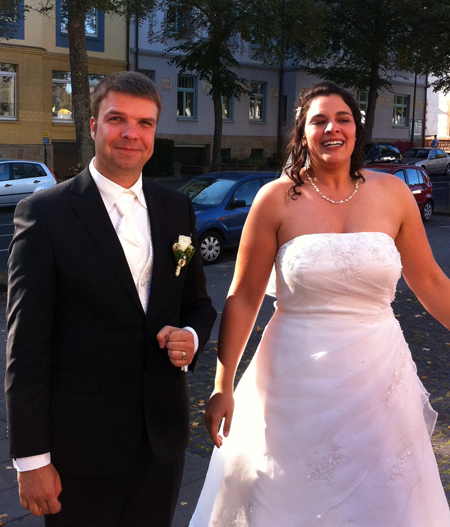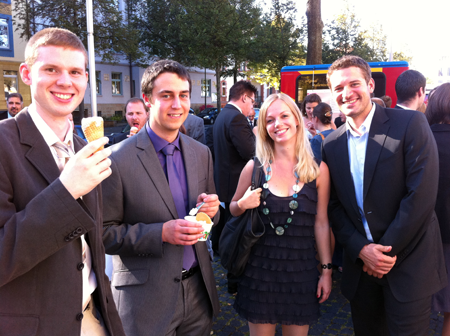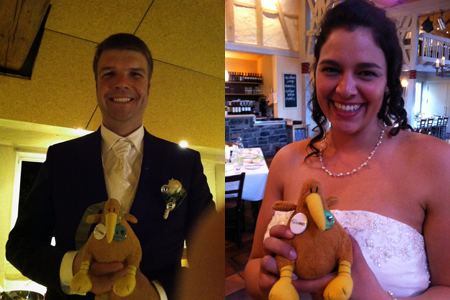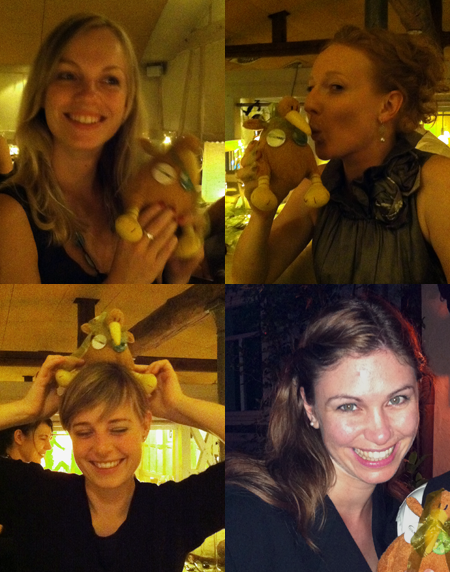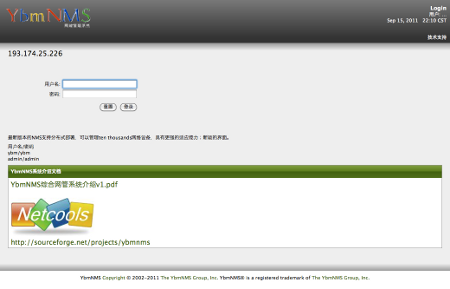It was ten years ago today that I first drove to the Oculan offices in Raleigh as an employee, and began working on the OpenNMS Project.
Oculan built a network management appliance on top of OpenNMS, and that was their main business. However, there was enough interest in the OpenNMS platform by itself that I was brought on board to build a service and support business around it.
I worked on that until May of 2002, when Oculan decided to focus solely on their appliance business, as well as to stop working on OpenNMS. I saw enough potential in the project to ask to take it over. Thus I became the sole maintainer of OpenNMS and started my own business called Sortova Consulting Company (named after Sortova Farm, where I live).
Somehow, I managed to keep the project alive as well as pay my mortgage. I owe no small part of that to a group of strangers that formed the inaugural class of the Order of the Green Polo (OGP). Although we had not met (yet), through IRC and the mailing lists they keep me going, if not the project itself.
In 2003 the business grew to the point where my satellite internet connection just wasn’t adequate. It was the only affordable option I had at the farm for any form of non-dialup internet, and since a T1 circuit with internet connectivity was going to run me close to $1000 a month, I decided it would be cheaper to rent an office in town and just get DSL.
I did that, but then I needed to get a new ISP (since I couldn’t afford both the office and to keep my satellite connection at home). Always wanting to “buy local”, I called up the local internet provider called Blast, and opened an account. While I was on the phone I asked about their monitoring solution, and was told I needed to “talk to Lyle”.
Lyle Estill is one of more animated and driven people I’ve ever met, and we hit it off. Since Blast was mainly a services company, he suggested that I bring OpenNMS and come work for him. So for the first time in over a year I ended up with a salary, as well as other people to help share the work around the .com side of the OpenNMS Project.
Through Blast I was able to hire David Hustace, and shortly after that, Matt Brozowski. We now had a real team of people working full time on the project, and things were looking up.
In 2004 Lyle decided to focus his time on a (then) nascent biofuels project. Before he left Blast, the three of us approached him about buying back the OpenNMS business, which we did to form The OpenNMS Group. That has been my current employer since September 1st, 2004.
We had reached the profitability tipping point, and have been organically growing ever since.
Working on OpenNMS has put me in touch with some amazing people. First there are my coworkers, who have been there through the best of times and the worst of times. Second are the people involved in the project itself, mainly through the OGP, but also the people I’ve met through the mailing lists and at conferences. Third are my customers. My job would be a lot harder without such a wonderful group of clients. They not only understand the value of OpenNMS, their input has had a direct impact on the development of the code. I’d be a poor businessman if I ignored the needs of the very people willing to pay me to build it.
Finally, I’ve gotten to travel the world. As a farmboy in a rural section of North Carolina, I’ve been to places like Singapore, Japan, Australia, Switzerland, Italy, the UK, France, Germany, Norway, Dubai, Portugal, and Mexico. I’ve been all over the US, including Alaska and Hawaii, and what I’ve found is that while the politics of our respective countries may differ greatly, people all over the world who love open source software are pretty much the same: bright, eager people who really enjoy having control over their software solutions.
Oh, I did I mention really good looking? Serious model potential here, yessiree.
This day did not come without some sad notes. I was looking forward to celebrating at the Ohio LinuxFest, with a number of those good people I mentioned above. Unfortunately, my usually illness free body betrayed me on Thursday, and with chest pains and a high fever I decided it was best not to travel. Things are better today and I should be fine, but it is still disappointing not to be there. Instead, I spent the morning watching David, my spouse and several of her coworkers in the Trooper Challenge Mud Run. It was a fun time, though not nearly as fun for me as the OLF. Oh, David finished 19th and plans to run the New York Marathon this year. He’s doing it for charity so if any of the three people reading this want to sponsor him, drop me a note.
Also today, Rackspace decommissioned server1.opennms.org. Rackspace Hosting is an awesome company and they have been both a client and a supporter of OpenNMS since 2002. When I started out on my own, they donated a server to the project, and it has hosted our mailing lists, website, FTP services, etc. over the years.
It was in their old datacenter in downtown San Antonio which is being closed, so they migrated us to a much newer and powerful machine out of Dallas. Still, it was like losing an old friend.
But on net, the number of friends I’ve gained in the last decade far outweighs that one loss. I am truly blessed to be able to make a living doing something I love, surrounded by awesome people who share similar goals.
Thank you.
